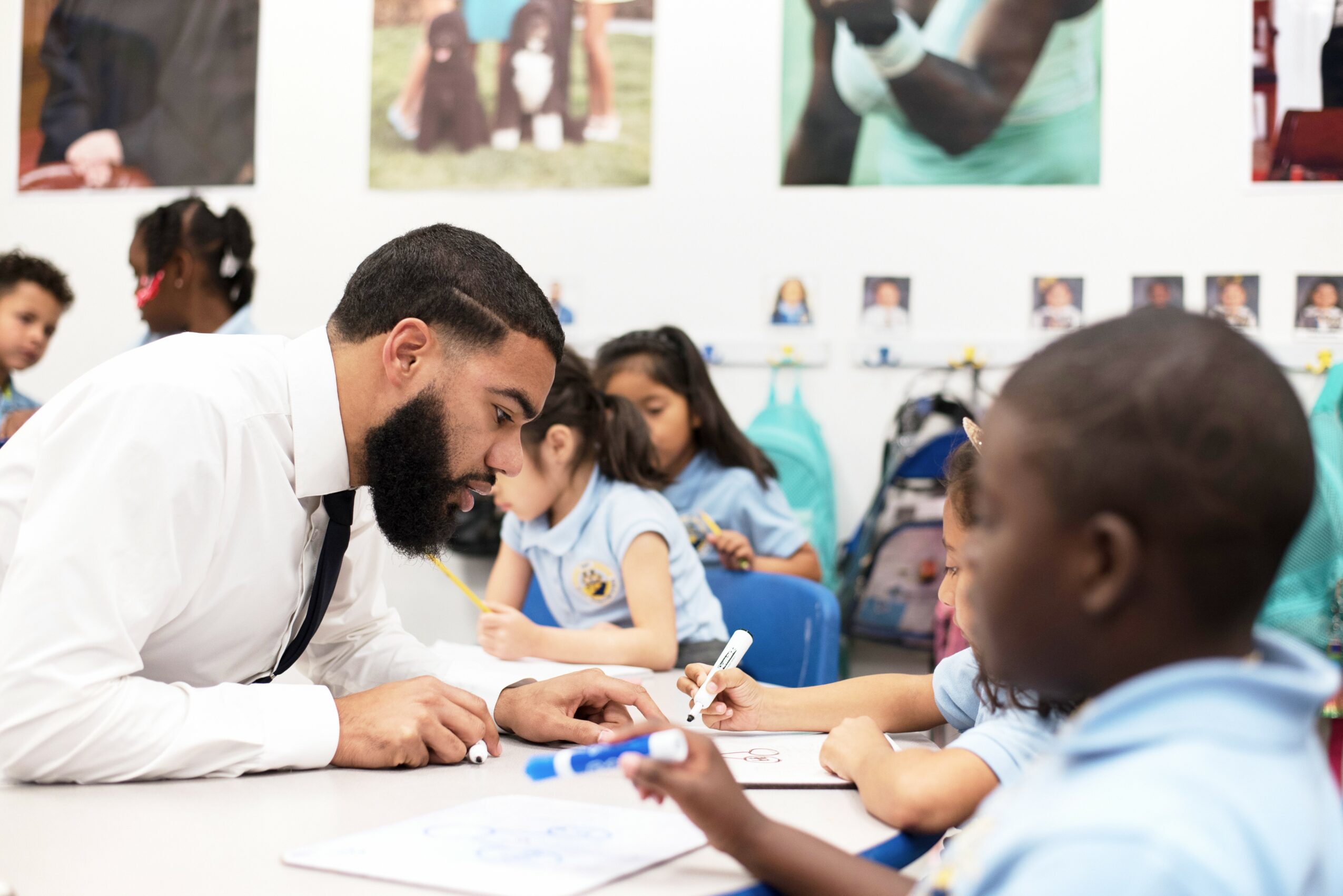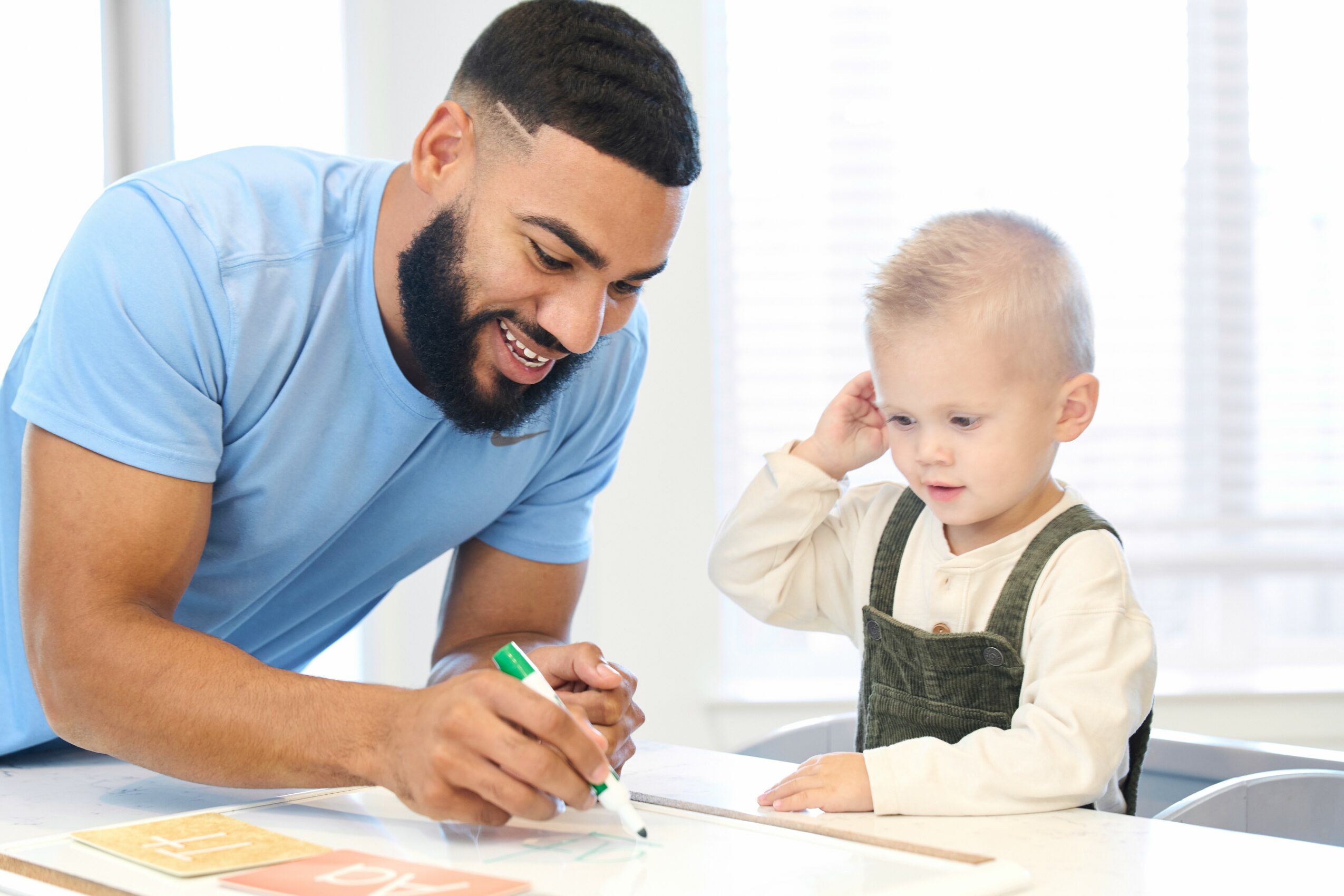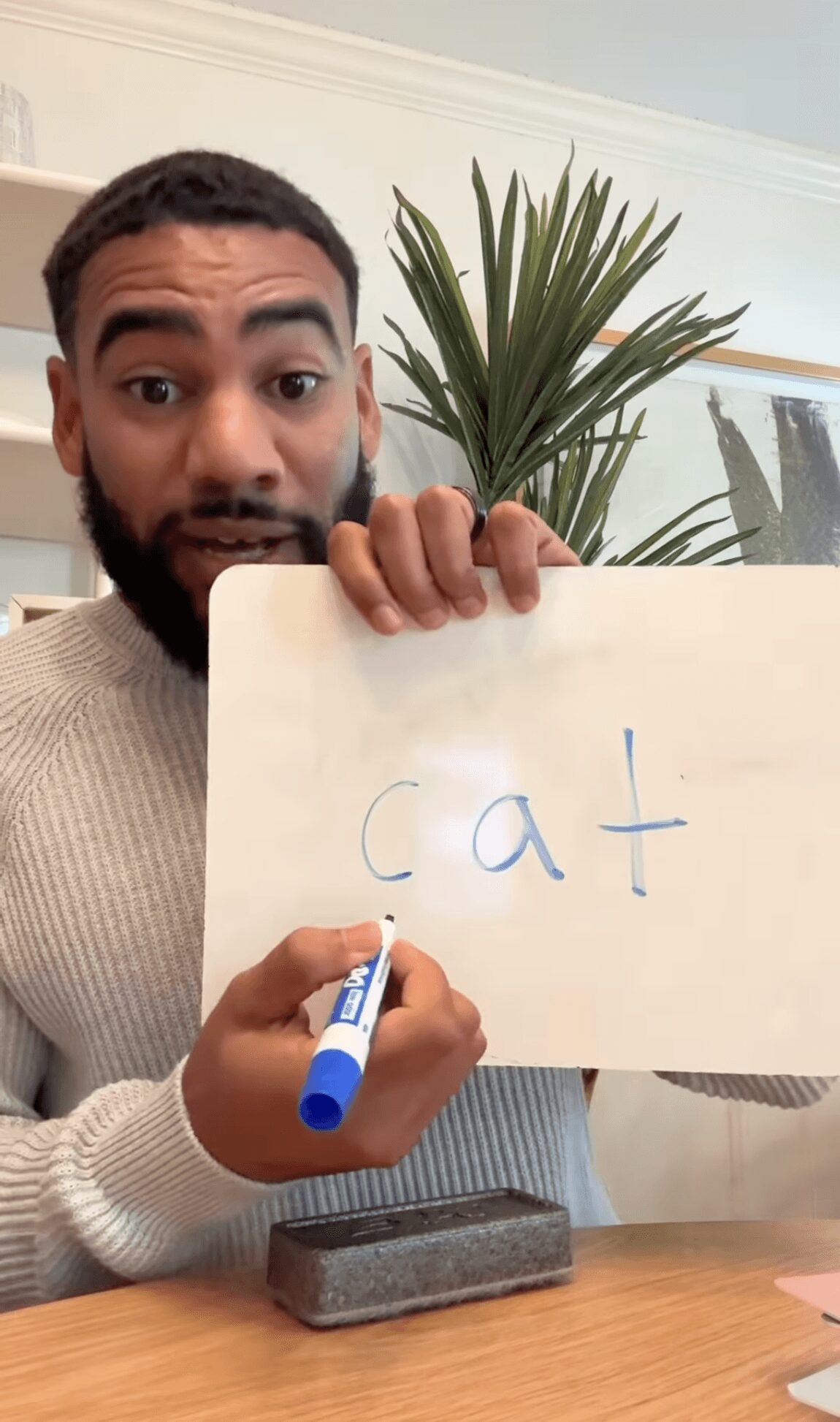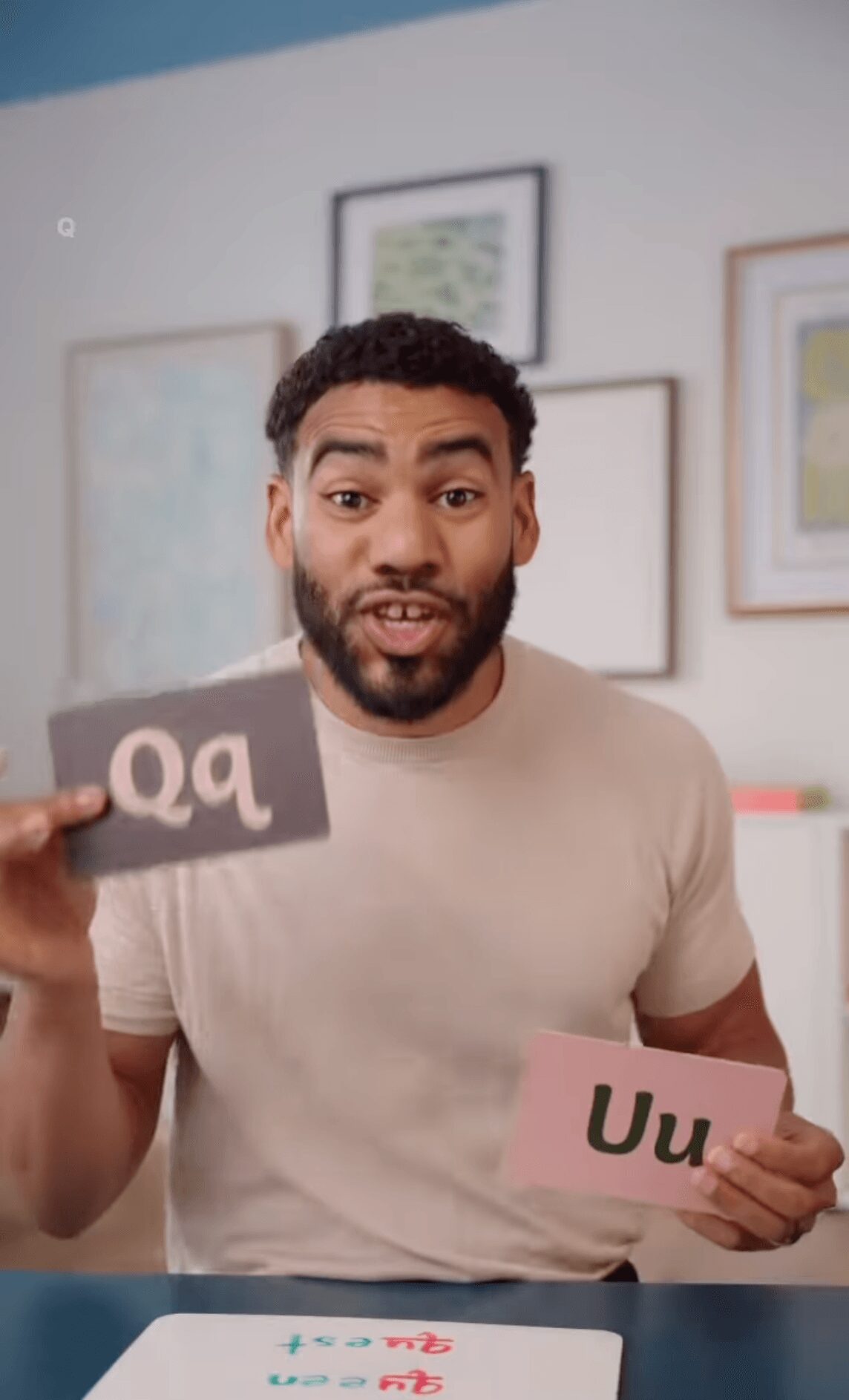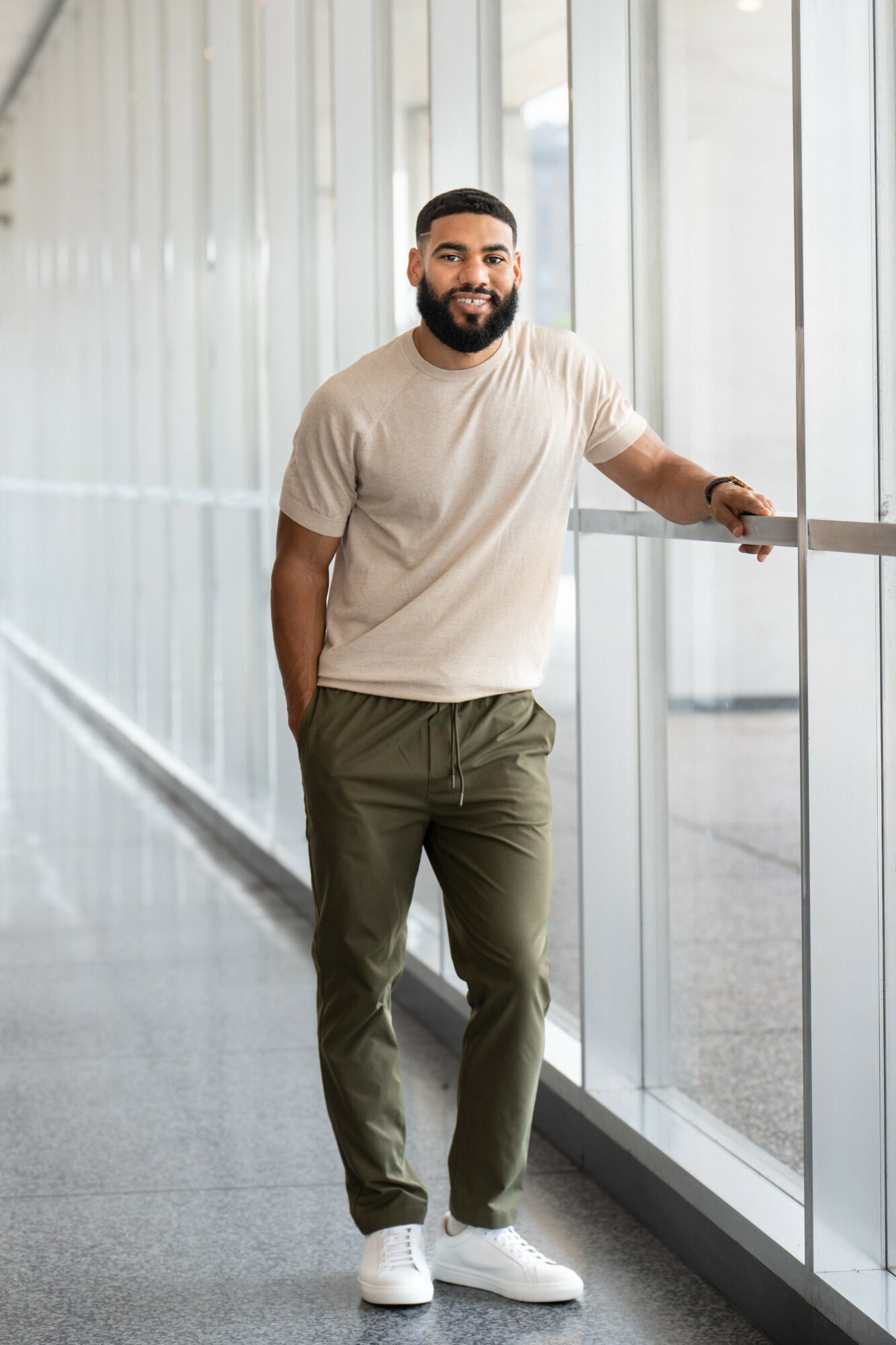

Today we’d like to introduce you to Spencer Russell.
Spencer, we appreciate you taking the time to share your story with us today. Where does your story begin?
I started my career in education as a kindergarten and first grade teacher at KIPP Legacy Prep in North Forest. I taught there for six years, three in kindergarten and three in first grade. During that time, I saw very clearly that parents play a bigger role in a child’s education than any teacher ever will, because a teacher has them for nine months, but a parent has them for life. The difference in reading outcomes had less to do with what happened inside my classroom, and more to do with how equipped a parent felt to support their child at home.
After my time in the classroom, I transitioned into adult-facing literacy work and became the Director of Special Projects at a nonprofit that specialized in curriculum-specific professional development for teachers. I led a team of facilitators who were helping teachers improve their literacy instruction and adopt science-of-reading aligned practices in their classrooms. That role helped me understand that even great training for educators still leaves a gap if families are not included in the process.
In May of 2021, I began sharing simple, practical reading strategies online for parents. At the time I had no audience and no background in social media. By November of that year, I decided to leave my job and focus on Toddlers Can Read full time. Our first major wave of traction came in early 2022 when videos on early phonics and sight words began reaching millions of parents.
Today, Toddlers Can Read equips parents with step-by-step tools and training to teach their children to read at home. We now serve tens of thousands of families as paying customers and reach over five million people across our online platforms. The goal has always been the same: strong reading outcomes for children by empowering the person who has the most influence over their learning journey — the parent.
I’m sure it wasn’t obstacle-free, but would you say the journey has been fairly smooth so far?
I’m not sure starting a business is ever easy, but starting with no business experience, no funding, and no social media following was definitely challenging. Most people convert a personal account into a business account, so at least they start with a couple hundred followers who already know them.
I started with zero. Not zero reach. Zero account. And I also had zero camera presence, which did not help. I still remembered Instagram as a photo-sharing app, but by 2021 it had become a video platform, and I had to learn that in real time.
Normally that wouldn’t seem like much of a hurdle. After all, I was just trying to help parents teach their children to read, and that felt like the kind of thing everyone would welcome. But the people who would be most interested in my message and my products were all on social media. And if one thing is true on social media, it is that the message does not matter if no one hears it.
So before I could teach anything, I had to learn how to capture someone’s attention in the first three seconds. I wasn’t just teaching literacy. I was learning storytelling, presence, pacing, camera work, and the style of communication that actually works on a platform built for speed and distraction.
And honestly, that was just one of many hurdles. There is always another one waiting on the other side of growth. But as Brendon Burchard often says, confidence is your belief in your ability to figure things out. It is not about already having the skill. It is about knowing you can develop the skill with time, persistence, and a willingness to learn in public. That mindset is what allowed me to keep going long before the results were visible.
Thanks – so what else should our readers know about your work and what you’re currently focused on?
When my son was 18 months old, I had no idea if toddlers could truly learn to read. I only knew that when my kindergartners entered school already reading, they had a much smoother year and enjoyed learning more. So when my wife and I had our son, I knew I was going to try to teach him to read as early as possible, even if every article and “expert” on the internet said he was too young to understand.
The result: at 18 months he started learning his first letter sounds, at 25 months he started reading his first words, and at 30 months he started reading his first books. Not memorizing books. Not guessing words. Reading them on his own.
And the craziest part is that my son was not born unusually gifted. He was born very cute (I mean very cute), but he was not a baby genius and he did not have hyperlexia. He was a totally normal kid who learned to read years earlier than most people thought was possible.
Which means what we typically believe is possible in literacy has far less to do with a child’s ability and far more to do with an adult’s assumptions. And if parents are given the right tools and resources to support their child’s literacy journey, then their kids can learn to read too.
That is what Toddlers Can Read is about. It is about giving any parent, regardless of their own education level or confidence, the tools to help their child become a confident and successful reader. That is what every parent deserves, and it is what every child deserves too. And I am proud that I get to give families that level of clarity and confidence every single day.
Can you talk to us about how you think about risk?
I think one of the biggest risks we ever take is continuing to do things we don’t love because we’re comfortable.
As Jim Carey once shared, “So many of us choose our path out of fear disguised as practicality.”
So personally, much of what I’ve done in my business would be considered “risky.” I quite a 6-figure, work from home job with great benefits to start a business helping parents teach their toddlers to read. When I quit that job, not only was I not making money, but I actually went negative during the first two months after quitting.
People told me toddlers couldn’t read. People told me I didn’t know enough to start a business. People told me to appreciate what I had.
But we all have to look in the mirror and decide what kind of life we want to live, what kind of example we want to set for our children, and what kind of impact we want to make on the next generation.
And for me, I would rather fail trying to do something meaningful than succeed at doing something that’s not.
So when people ask me if that choice was a risk, I understand why it looks that way on paper. But it never felt risky to me. Staying would have felt risky. Leaving felt logical.
Contact Info:
- Website: https://www.toddlerscanread.com
- Instagram: https://instagram.com/toddlerscanread
- Facebook: https://facebook.com/toddlerscanread
- Twitter: https://x.com/toddlerscanread
- Youtube: https://youtube.com/@toddlerscanread
